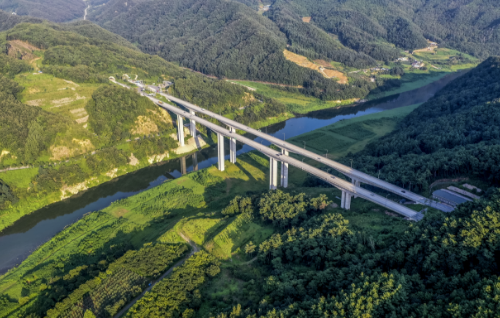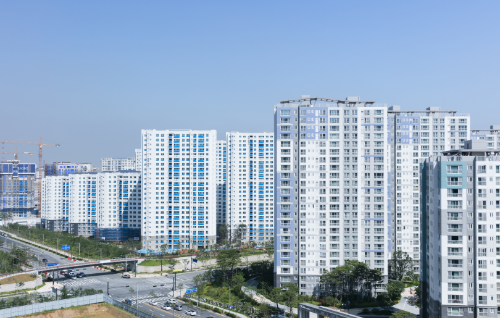Divisions
Research Activities
-
 National Territorial & Regional Research Division
National Territorial & Regional Research DivisionThe National Territorial Planning and Regional Research Division conducts short- and long-term research projects related to territorial and regional development. The Division’s areas of focus include national territorial and regional planning and policies, the future of the national territory, the Korean Peninsula and Northeast Asia, policies regarding the Seoul Capital Region, regional economies, regional development and industrial location.
-
 Urban Research Division
Urban Research DivisionThe Urban Research Division conducts research on such topics as urban regeneration and development, urban industries for the management of a dynamic and competitive territory and cities; urban planning and design for healthy cities featuring both a prosperous and comfortable environment and appropriate urban infrastructure; urban disaster prevention to mitigate climate change and natural disasters; territorial management and planning to protect and utilize cultural heritage and construct a culturally rich and eco-friendly environment; and other national land management and urban policies directly related to the citizens’ quality of life.
-
 Housing & Real Estate Research Division
Housing & Real Estate Research DivisionThe Housing & Real Estate Research Division conducts various researches on housing policy, land policy, real estate market policy, construction, private investment and resource. Our specific major research areas include housing survey, comprehensive housing plans, land ownership and development, analysis of the real estate and construction market, the real estate market consumer sentiment index, construction market risk analysis, private investment support, and the improvement of infrastructure, water resources and energy management, etc.
-
 National Infrastructure & Geospatial Information Research Division
National Infrastructure & Geospatial Information Research DivisionThe National Infrastructure & Geospatial Information Research Division conducts research on planning and policy development related to infrastructure facilities and spatial information. For infrastructure research, the division focuses on developing transportation infrastructure policies and plans at the national, regional, and urban levels. These include the National Road Network Plan, National Rail Network Plan, Metropolitan Transportation Plan, Intelligent Transportation System (ITS) Plan, National logistics policies, and the promotion of public transportation. The division is also at the forefront of research on digital infrastructure in response to technological advancements such as autonomous driving, AI, and big data. For geospatial information research, the division acts as a hub for spatial information technology and knowledge ecosystems, supporting scientific policy-making. It is engaged in research on spatial information policy and analysis, digital twins and the metaverse, big data and AI, remote sensing, and 3D spatial information, which leads to driving nation’s spatial information innovation. The division also focuses on creating new value by establishing spatial analysis and simulation environments to support making data-driven and region-specific spatial policies.
-
 Global Development Partnership Center
Global Development Partnership CenterThe Global Development Partnership Center provides education, consulting, and planning support for developing countries based on KRIHS’ about 40 years of experience and expertise in national territorial development. To offer more effective support, the center works closely with international organizations such as the World Bank, Inter-American Development Bank, Asian Development Bank, and UN-Habitat. It expands academic partnerships and policy exchanges to prestigious international research institutes and universities. Through its global network, the center continues to enhance its capacity for international collaboration.
